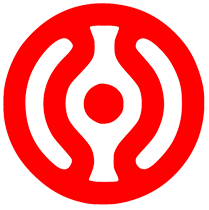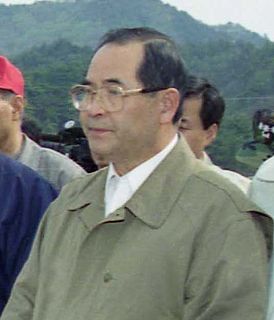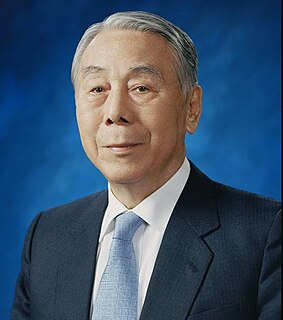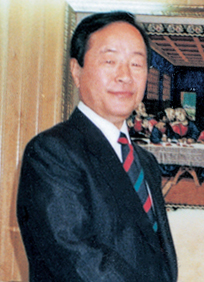This biography of a living person needs additional citations for verification .(January 2011) (Learn how and when to remove this template message) |
Choi Jae-cheon (born November 19, 1963) is an attorney and a politician in South Korea. [1] He was elected a member of the National Assembly from Seongdong-gu, Seoul in 2004 and was a member of the Democratic Party (Uridang) from 2004 to 2008.

South Korea, officially the Republic of Korea (ROK), is a country in East Asia, constituting the southern part of the Korean Peninsula and sharing a land border with North Korea. The name Korea is derived from Goguryeo which was one of the great powers in East Asia during its time, ruling most of the Korean Peninsula, Manchuria, parts of the Russian Far East and Inner Mongolia under Gwanggaeto the Great. Its capital, Seoul, is a major global city and half of South Korea's over 51 million people live in the Seoul Capital Area, the fourth largest metropolitan economy in the world.

Seoul, officially the Seoul Special City, is the capital and largest metropolis of South Korea. With surrounding Incheon metropolis and Gyeonggi province, Seoul forms the heart of the Seoul Capital Area.
After graduating in law at Chonnam National University in February 1986, he passed the 29th judicial examination in 1987 and completed the whole course of the Judicial Research and Training Institute in February 1990. He then served as a military judicial officer from 1990 to 1993. He obtained a master's degree in law at the Chonnam National University in February 1993 and a Ph.D. from the same university in February 2000.

Chonnam National University is a South Korean university located in the metropolitan city of Gwangju which lies in the middle of South Jeolla or Jeonnam (Chonnam) province, for which the school is named in the Southwest of the country. The university was formally established in January, 1952 through the union of Gwangju Medical College, Gwangju Agricultural College, Mokpo Commerce College, and Daeseong College. It currently consists of 59 academic departments in 19 colleges and 11 graduate programs. University attached facilities are the University Library, Museum, Health Service Center, Agro-Bioindustry Technical Support Center, Animal Hospital, Language Education Center, School of Lifelong Education, and University Computing Center. In March 2006, Yeosu National University merged with Chonnam National University to become a satellite campus.
He opened a law office at Seoul in March 1993, and founded the Han-gang Law Corporation in March 2003. After he was elected as the 17th lawmaker of Uri-party (in 2004, he served as a member of the Legislation and Judiciary Committee, the Intelligence Committee, the Foreign affairs, Trade & Unification Committee, and the Food, Agriculture, Forestry & Fisheries Committee. He also worked as a spokesman of a presidential candidate of the Democratic Party from October to December 2007.
Currently he is a representative of the Heritage Law Firm.











